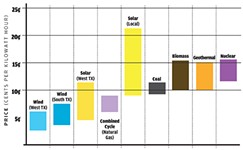ID Law One More Hurdle for Trans Voters
Requirements lead to less civic participation
By Brandon Watson, Fri., May 30, 2014
For Jimmie D. Sparklefingers,* correcting the information on his voter's registration card became a months-long mission. After filling out several forms, visiting the Travis County Tax Office, and waiting in some suspense, he finally received his card last Friday. Despite the long wait, he considers himself fortunate. For many transgender Texans, it's not that easy.
In December 2013, Travis County Tax Assessor/Collector Bruce Elfant's office began issuing voter registration cards listing former names. In Sparklefingers' case, the card listed both his legal and given name. Although the card included his correct first name, he says his former first and last names were hyphenated onto his legal last name, "creating a name that was never a legal name at any point."
While the office has always kept records of former names, the listing of former names – a common problem for many women as well – was a requirement of last year's strict voter identification legislation. A voter can have the former name removed – by completing a name change online, mailing corrected information on the back of the registration card, or submitting a corrected registration application in person – but that isn't made explicit.
Changing a name online or in-person can he a hard obstacle to overcome. "For some trans people, its hard to do that," says Sparklefingers, "harder than it is for most populations given the extremely high indigence rate. The fact that I have a job and a car puts me in the higher ranks, as well as being white and degree-holding, and having connections."
Transgender people are among the most economically marginalized populations in the United States. According to a 2013 report, A Broken Bargain for Transgender Workers, transgender people have disproportionately high unemployment and underemployment rates, and 15% of transgender respondents reported household income below the federal poverty line. The economic hardship coupled with bureaucratic hoops can have a chilling effect on civic participation.
Equality Texas legislative specialist Daniel Williams says the No. 1 question his office fields from the transgender community related to the law is simply, "Can I vote?" And while he says it's not fair to say that the Voter ID law was specifically designed to target the transgender community – it's created additional obstacles for poor and minority voters – he says the law was "written without any consideration of how it would affect transgender Texans."
Williams says the former name requirement isn't the only problem with the law. "We've been hearing from people all over the state who are unable to vote," he says. In some cases, Williams says, that's the result of "poll workers who have taken it upon themselves to be overzealous." Gender policing can occur when a voter's gender presentation does not align with the gender listed on state documents.
Texas counties provide training on the Voter ID requirements, but none of the materials provided by the Texas secretary of state's office address transgender voters. Theoretically, counties have discretion to include such language, but Williams says he is not aware of any county that does so, including Travis.
The enforcement of gender at the voter booth can be particularly problematic for the transgender population. The process of changing gender markers and names on state IDs is rarely straightforward. While name changes should follow the Texas process, Williams says additional burdens may be placed on a person if they choose a gendered name that doesn't necessarily imply their legal gender.
Changing gender markers is even more difficult. There is no universal judicial process in Texas for handling gender corrections. Some Texas courts only require proof of treatment for gender dysphoria; others require surgery. Williams says that at least one court explicitly requires "a functional vagina that is capable of penetration."
For many, the requirements are impossible to meet. Not all transgender persons desire sex reassignment surgery. Among those who do, few can afford the prohibitive costs, and the procedure is rarely covered by insurance.
Even those who are able to clear those hurdles can be discouraged from voting by privacy concerns. Some individuals do not identify as transgender post-transition and others remain closeted due to safety concerns. Misgendering can have devastating effects. "Putting people's former names on a voter registration card that could be seen by anyone, with their gender marker, is enough to get someone killed," says Sparklefingers. "It's totally irresponsible outing so many people who lived [in] stealth up until that point."
Williams says Equality Texas and other advocacy groups worked to raise awareness on the detrimental effects of the Voter ID law when it was being considered in 2013. The Republican-dominated Legislature has largely declared the law a success. In terms of keeping Texas red, that may be true. In terms of the already underrepresented transgender population, it has been everything but.
* Nickname used to protect privacy
Got something to say on the subject? Send a letter to the editor.











